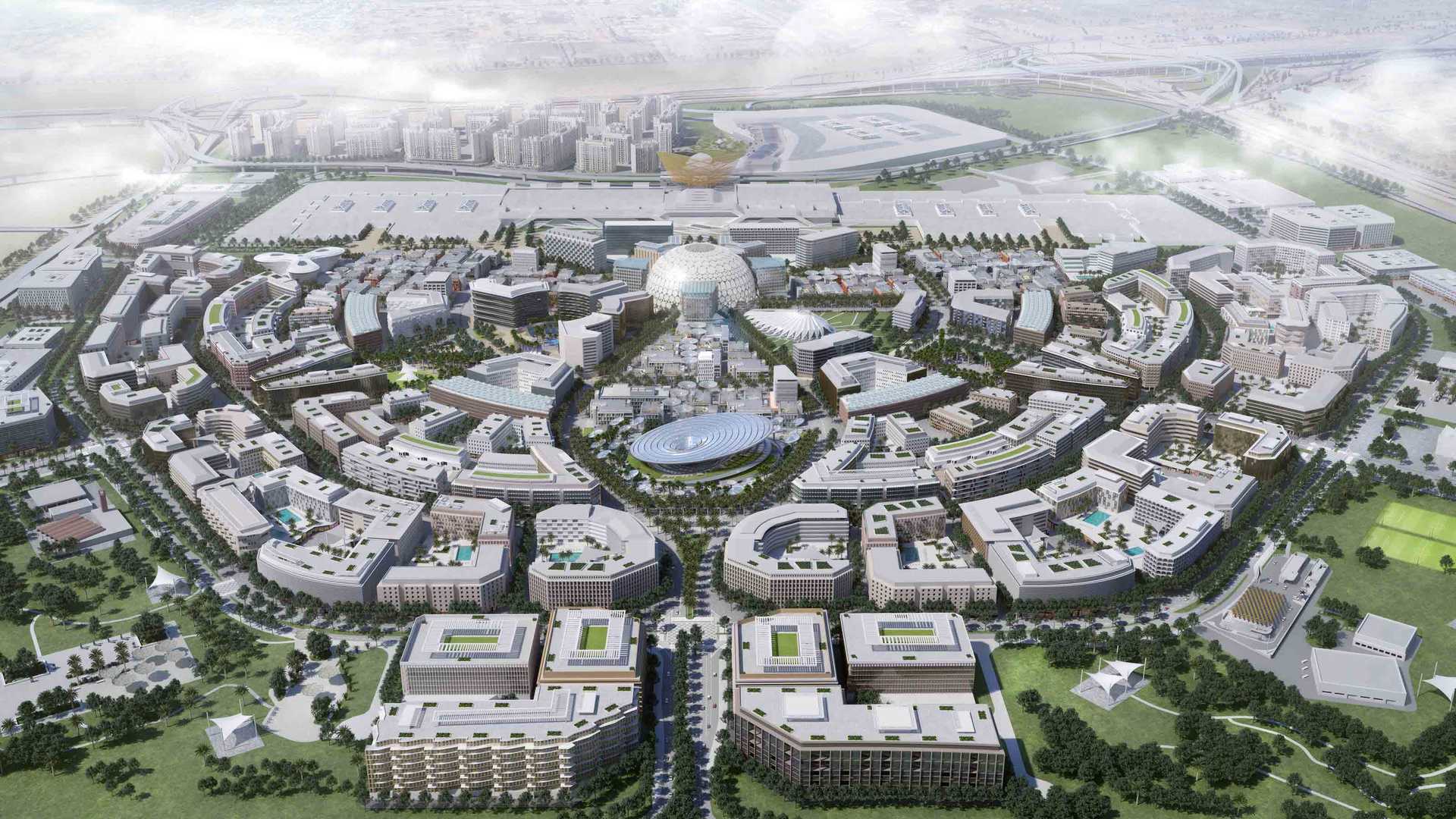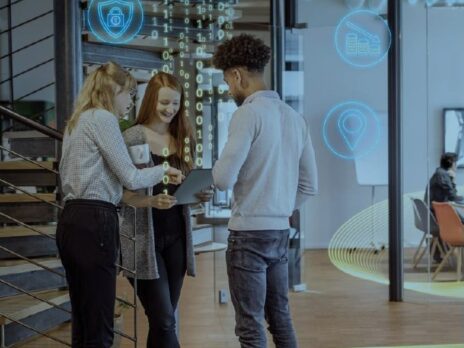
Covid-19 has brought great change to the home and work lives of millions of people around the world. As we chart a path back to some form of normality, few think things will simply return to the way they were.
Through the disruption wrought by the pandemic, it is incumbent upon everyone to imagine a better, more sustainable future, where well-being is as prized as productivity. This means all stakeholders working together to make our urban environments safer, more resilient and more sustainable.

“Safety and security have been pushed to the forefront by the pandemic, and, as a result, greater expectations are being placed on our city infrastructure,” says Dave Hopping, CEO of Solutions and Services at Siemens Smart Infrastructure.
“It is clear that technology is no longer a nice-to-have; digitalisation is essential if we are to make our infrastructure truly smart, and build a foundation of long-term adaptability and resiliency into our cities.”
Harnessing smart technology and connectivity is helping create a more resilient urban landscape, and the pandemic has accelerated trends that were already transforming how we worked, communicated and experienced the built environment prior to lockdowns.
“Our cities are increasingly complex, and digitalisation enables us to be more proactive in addressing the challenges they face,” says Hopping. “It also allows for the creation of additional value-add use cases, especially when leveraging the cloud and internet of things (IoT) devices to create safe, secure and resilient environments for people.
“Digitalisation will also become a ‘must have’ for cities to compete for talent and business,” Hopping continues. “Along with a higher quality of life for people, technology-focused infrastructure allows for cities to reduce expenses and resource usage, to become more efficient and ultimately more sustainable.”
In order to showcase these capabilities, Siemens is serving as Expo 2020 Dubai’s premier partner for infrastructure digitalisation, helping create “a blueprint for future smart cities”.
“As urban populations grow and as government services, mobility routes and resources become increasingly burdened, cities are forced to prioritise sustainable approaches to future growth,” says Nadimeh Mehra, vice-president for District 2020. “[We are] looking to provide a model for enhanced liveability and community-focused cities, where the physical environment and smart applications are used to enhance the experience of workers, residents and visitors.”
A living example
To deliver on this array of aspirations and challenges, the capturing and leveraging of data is only going to increase in significance.
“The ability to capture, analyse and act on real-time data is crucial to create environments that are not only safe and resilient, but also meet the day-to-day needs of the people using them,” Hopping remarks. “Digitalisation also paves the way to leveraging the cloud to connect city infrastructure.”
The legacy of Expo 2020 Dubai, beginning in October 2021, will bring this vision to life. When it ends, the site will evolve into District 2020, repurposing 80% of the Expo’s built environment into an integrated, mixed-use urban centre – a smart and sustainable city for an inclusive and diverse community that prioritises well-being as well as work.
“District 2020’s approach to its community is human-centric, and its purpose is to unlock human potential and allow for collaboration across key industries,” explains Mehra. “It starts with the evolving needs of individuals and future workers. When we designed the build, we took into consideration the end user’s needs and, most importantly, their well-being and sense of community, as well as enhanced connectivity and productivity.”

Citizens are placed at “the heart” of its design, which features pedestrian-friendly streets with low-rise, self-shading buildings, as well as innovative digital applications and smart technologies, such as autonomous vehicle routes as an efficient transport solution, and the MindSphere app, based on Siemens’ cloud-based IoT operating system, allow real-time monitoring and control of city infrastructure. In total, Siemens technologies are installed in over 130 buildings on the Expo site.
“Expo 2020 Dubai and District 2020 have the potential to inform how we consider intelligent, resilient and human-centric infrastructure around the world,” Hopping explains. “What is exciting is the breadth of infrastructure we are digitalising and connecting, from cloud-based energy analytics for building efficiency to access control, video management and environmental monitoring.”
“District 2020 looks to set new benchmarks for urban communities that are more inclusive, balanced and sustainable,” agrees Mehra.
Interconnectivity plays a crucial role in a city’s digital framework, creating a real-time flow of data that can be shared across domains such as energy, transport and water networks, allowing them to work together.
“This not only serves to optimise their performance for cost and resource efficiency, but creates smarter, more liveable cities that are tailor-made for the people who live in them,” Hopping explains. “A seamless technology experience across a city, where a person’s information follows them and interacts with the infrastructure around them, enhances well-being, productivity and ultimately, quality of life.”
The energy piece is also key in delivering resilience and long-term security, with many of the most innovative responses being defined at the grid edge, where production – including a growing amount of small-scale power generated by prosumers – meets consumption. Expo 2020 Dubai is also behind MENA’s first industrial scale, solar-powered green hydrogen facility, the result of a collaboration with Dubai Electricity and Water Authority and Siemens Energy.
“Innovation at the grid edge is playing an ever-larger role in energy security and resiliency in cities,” Hopping remarks. “With seamless integration of multiple power generation sources, we can balance and stabilise a power grid, optimising it for efficiency and sustainability. An intelligent energy system in which the grid, consumers, producers and storage facilities work together is inherently more flexible and, therefore, resilient.”
Safety and privacy in the balance
At the most basic level of safety, technology can provide a touchless environment for everything from elevator controls to doors. At the more sophisticated end, it can track key data on usage and user trends to optimise their living and working environment, as well as monitoring air quality, enhancing emergency response and improving traffic safety.
“As our cities get smarter, they become safer, healthier, more secure as well as more liveable and more responsive,” believes Mehra. “Most of District 2020’s buildings will use smart technology to meet sustainability targets through built-in smart metering. This kind of smart monitoring will provide digital feedback on energy and water consumption, allowing employees and residents to live more sustainably.”
With data, however, comes potential risks in terms of data security.
“A robust strategy to manage cybersecurity and data protection is essential if we are to make our cities smarter, while minimising threats,” remarks Hopping. “It is important to understand the complexity of connectivity, for example, and the ethical treatment of user information must be a priority to ensure that data is not misused. We need to be transparent when it comes to data privacy; people should know they are protected, and they must feel safe as well as be safe.”

Marrying the capability of technology with an intimate understanding of what users need – in terms of functionality, sustainability, liveability and, crucially, privacy – could create a legacy that will shape a better future. In fact, for Hopping and Mehra, that future has already taken physical form, in the shape of Expo 2020 Dubai.
Dave Hopping and Nadimeh Mehra will be in conversation at the World Cities Summit 2021 on Monday 21 June, discussing: ‘A resilient smart city: how to ensure security in the face of crisis and disruption’. Register online now.







